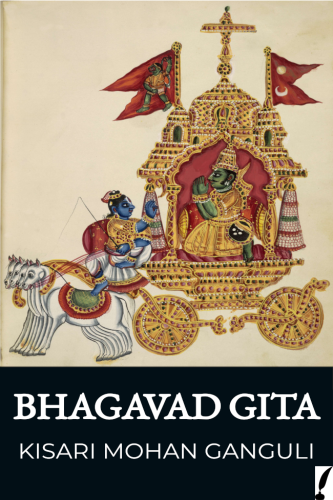Body, Mind & Spirit
- Astrology 2
- Dreams 3
- General 27
- Inspiration & Personal Growth 21
- Meditation 1
- Mysticism 1
- New Thought 11
- Occultism 3
- Parapsychology 2
- Reincarnation 3
- Spiritualism 9
- Spirituality
- Witchcraft & Wicca 15
Spirituality Books
Sort by:
by:
DadaBhagwan
Geld hat in unserem Leben eine eigene Bedeutung. Die Welt betrachtet Geld und Reichtum als eines der wichtigsten Dinge im Leben. Die Menschen haben mehr Liebe zum Geld, weil es in allem, was sie tun, benötigt wird. Deshalb gibt es überall auf der Welt einen Kampf um mehr Geld, durch ethische oder unethische Mittel. Die Menschen fühlen sich durch die ungleiche Verteilung von Geld und Reichtum besorgt....
more...
It is with great pleasure and reverence that we present this free EPUB edition of the Bhagavad Gita, translated by the distinguished Kisari Mohan Ganguli. This timeless scripture, which forms chapters 25-42 of the sixth Parva (Bhishma Parva) of the Mahabharata, stands as a cornerstone of spiritual literature, offering profound insights into the nature of duty, righteousness, and the eternal truths of...
more...
by:
DadaBhagwan
Those seeking to lead a spiritual life inevitably face challenges in their pursuit of spirituality and practice. As spiritual development progresses, facing one’s faults, failures, and unintentional mistakes become disconcerting – even for the most sincere seeker. One may then ask, “What are the benefits of the different types of religion? From the many religions of the world, which practices will...
more...
by:
DadaBhagwan
There are times in life when we must endure suffering due to no fault on our part – or so it seems. Life circumstances can appear terribly unjust. Naturally we question, “Why me? Am I wrong? It’s not my fault!, Why do bad things happen to good people?” Added to the many problems in everyday life, these situations can feel like the very definition of suffering. We may conclude that there is no...
more...
by:
DadaBhagwan
Those seeking to lead a spiritual life will naturally ask themselves how to progress in spirituality, and how to live spiritual values. Must one somehow transcend good and bad, right and wrong? When does one’s spiritual development truly begin? By enlightened definition, the foundation of a spiritual life is a faultless worldview; and to achieve such vision, Self realization is required. In the book...
more...
by:
DadaBhagwan
Those seeking to lead a spiritual life inevitably face challenges in their sincere pursuit of spirituality and practice. As spiritual development progresses, facing the many unintentional mistakes made through mind, speech, and conduct become disconcerting. Naturally one begins to wonder, “How to forgive and forget in unhealthy relationships?”, “How to forgive yourself - both for mistakes of the...
more...
by:
DadaBhagwan
Among the myriad of relationships in life, the one between a Guru and disciple is most sacred and unique. In the book “Guru and Disciple”, Gnani Purush (embodiment of Self knowledge) Dada Bhagwan provides insight into the nature of the Guru-disciple relationship and offers in-depth answers to questions like: “What are definitions of Guru, and disciple? How is a Guru necessary in spiritual...
more...
by:
DadaBhagwan
Muitas pessoas lutam para entender o que é verdade, o que é certo e o que é errado. Existe um dilema contínuo para distinguir entre certo e errado. De acordo com Dada Bhagwan, o GnaniPurush (aquele que é iluminado), na vida terrena existem três tipos de verdade: a verdade absoluta ( doeu), a verdade relativa e a inverdade. Neste livro, Dadashriaborda o significado da verdade absoluta e relativa. A...
more...
by:
DadaBhagwan
Si una persona sufre, es a causa de sus propios errores. Si una persona es feliz es por el premio de sus buenas obras. Pero la ley del mundo acusa al “nimit” (el hacedor aparente, la persona que inflige el sufrimiento).La ley Divina pilla al verdadero culpable. Esta ley es exacta y nadie puede cambiarla. No hay ley en este mundo que pueda infligir sufrimiento a nadie, ni siquiera la ley del...
more...
by:
DadaBhagwan
¿Acaso nos quejamos a la alcantarilla cuando ésta huele mal? De la misma manera, hay gente que es desagradable y negativa como una alcantarilla. Todo lo que huele mal lo llamamos alcantarilla y a todo lo que huela bien lo llamamos una flor. Adáptate a ambos olores. Estas dos situaciones te están diciendo : “Conviértete en un Vitraag (en un ser libre de apego y de aversión) con nosotros (el mal y...
more...











